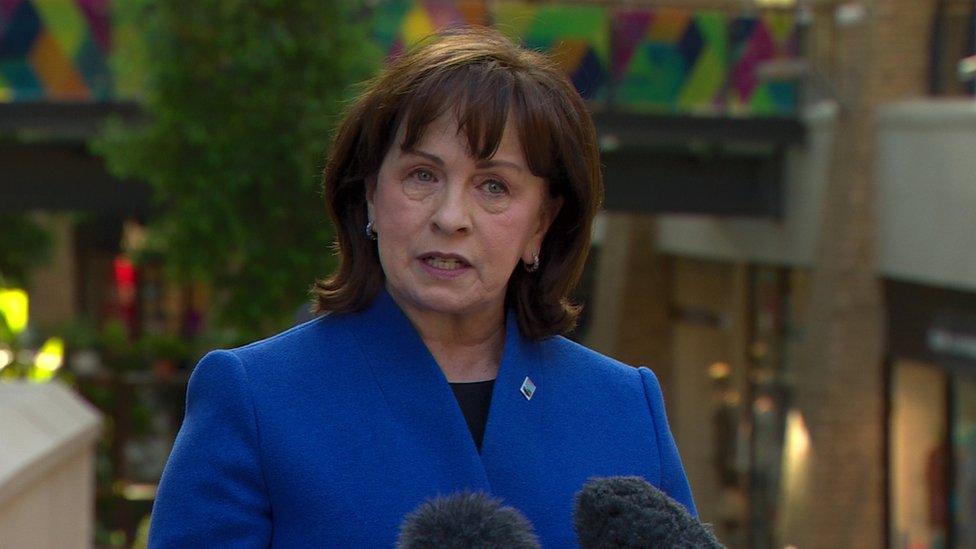DUP MLA Diane Dodds condemns 'callous' dead son tweet
- Published
Diane Dodds condemns 'callous' dead son tweet
Democratic Unionist Party (DUP) assembly member Diane Dodds has described online abuse mocking her late son as "callous and malicious".
The Upper Bann representative's son Andrew was born with spina bifida and died in 1998, aged eight.
Police are investigating after she was targeted by an anonymous Twitter account, which has since been removed.
"In politics you expect the rough and tumble, but you probably don't expect that level of brutality," she said.
A spokesperson for Twitter said the company wanted to "reiterate our commitment to ensuring that Twitter doesn't become a forum that facilitates abuse".
Speaking on BBC Radio Ulster's Nolan Show, Mrs Dodds said online trolling could be both harmful and dangerous, adding that those involved set out to "strike the core of your very being".
She said she had received messages of support from members of the public and other politicians following the incident on New Year's Eve.
"People are shell-shocked that there can be this much cruelty and callousness," she said.
Mrs Dodds said the anonymous Twitter account involved has also been trolling victims of terrorism on the platform.
Police Service of Northern Ireland (PSNI) officers attended her constituency office on Tuesday.

Police officers visited Diane Dodds at her constituency office on Tuesday
The former economy minister welcomed Westminster's plans to introduce an online harm bill but she said what is being proposed won't be effective enough.
"People in the public eye seem to be seen as fair game," Mrs Dodds said.
"I don't see anything in the new bill that will actually deal with this feature that people on social media can hide behind a cloak of anonymity.
"It is really time the government got a grip on the situation."
A spokesperson for Twitter said: "Protecting the health of the public conversation on Twitter is important to us, and we'll continue to enforce our policies across violative content.
"We acknowledge and want to reiterate our commitment to ensuring that Twitter doesn't become a forum that facilitates abuse and we continue to examine our own policy approaches and ways we can enforce our rules at speed and scale."
- Published2 January 2022
